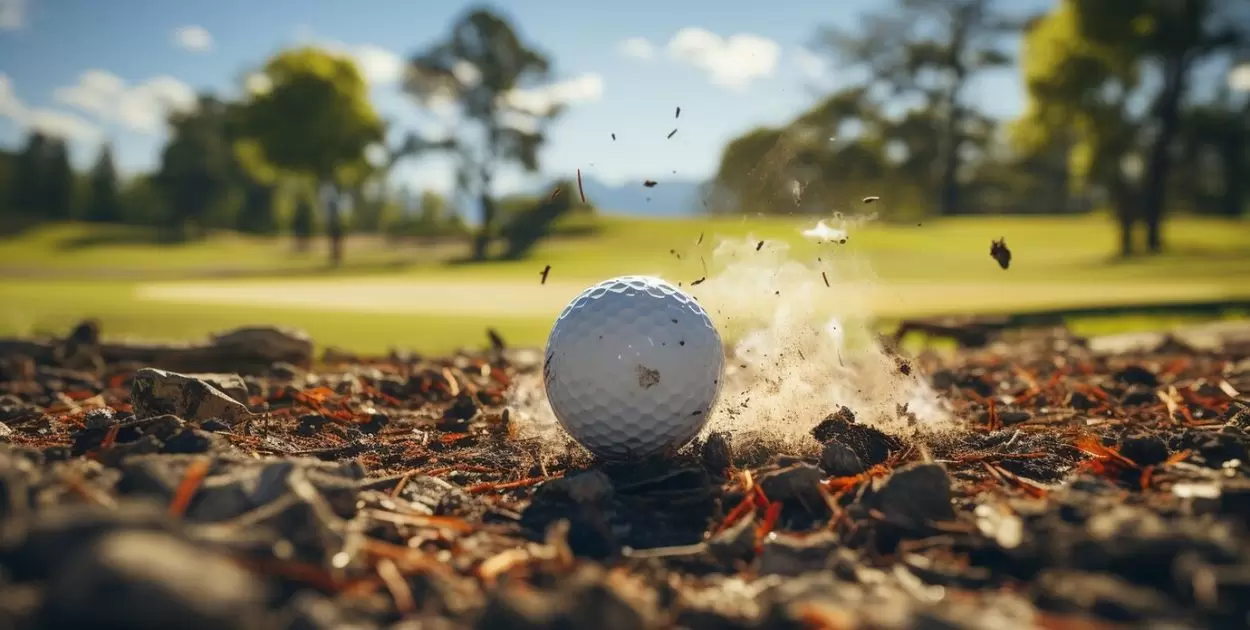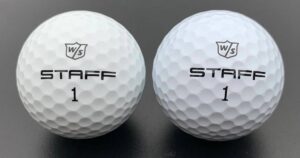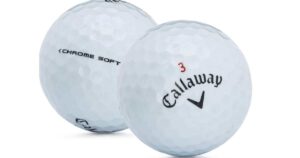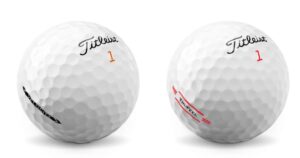Ever wondered, “What Causes Exploding Golf Balls and How to Prevent It?” The phenomenon refers to golf balls rupturing unexpectedly during play. It’s a rare but perplexing occurrence that raises questions about the factors contributing to such incidents.
Dive into the mystery of exploding golf balls. This unusual event may result from manufacturing defects, extreme temperatures, or even a buildup of internal pressure. Understanding these factors is crucial to avoiding unexpected disruptions on the golf course.
Exploring “What Causes Exploding Golf Balls and How to Prevent It?” unveils insights into manufacturing standards and storage precautions. Learn how selecting quality golf balls and proper storage can mitigate the risk, ensuring a safer and more enjoyable golfing experience.
What could cause a normal golf ball to have an internal explosion and become egg-shaped?
Internal explosions and deformations in golf balls are rare but can happen due to various factors. Manufacturing defects, like uneven core compression, may create vulnerabilities. Extreme temperatures, especially in storage, can lead to gas expansion inside the ball, causing it to deform. Impact with a hard surface, like a tree or cart path, may also trigger an internal explosion, altering the ball’s shape. While uncommon, understanding these factors helps golfers minimize the risk by choosing quality balls, proper storage, and being mindful of potential impacts during play.
What Causes a Golf Ball to Explode?
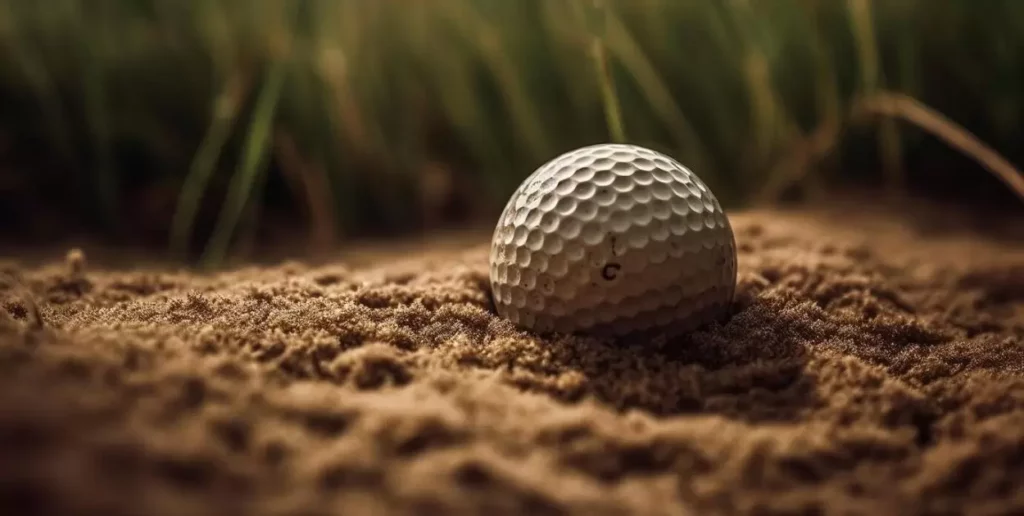
Manufacturing Defects:
Golf balls can explode due to manufacturing errors, including uneven layers or air pockets during production. These defects compromise the structural integrity, making the ball prone to rupture during play.
Extreme Temperatures:
Exposure to extreme temperatures, particularly high heat, can alter the pressure inside golf balls. The change in pressure can lead to internal instability, resulting in an explosion during impact.
Aging and Wear:
Older golf balls, especially those with worn-out covers, become brittle over time. This increased brittleness makes them more vulnerable to rupturing upon impact, even with standard shots.
Impact Damage:
Severe hits against hard surfaces or striking the ball with excessive force can cause structural damage. Damaged golf balls are more likely to rupture, creating unexpected disruptions during play.
Moisture Absorption:
Water entering the core of the golf ball, whether during play in wet conditions or storage in a damp environment, can change the internal dynamics. This alteration increases the risk of rupture during impact.
Storage Conditions:
Incorrect storage, like leaving golf balls in extremely hot environments or under direct sunlight, can contribute to internal pressure changes. These changes amplify the risk of explosion during play.
Air Pressure Fluctuations:
Changes in atmospheric pressure, especially at higher altitudes, can influence the internal pressure of golf balls. This atmospheric variation may contribute to explosions during play.
Core Composition:
Golf balls with a soft or liquid-filled core may be more susceptible to ruptures. Changes in temperature or pressure can affect the core, increasing the likelihood of an explosion.
Quality Control Issues:
Inconsistencies in the quality control process during golf ball manufacturing can result in structural weaknesses. Golf balls with such weaknesses are more prone to explosions during play.
Incorrect Compression:
Using golf balls with compression levels unsuitable for a player’s swing speed can contribute to premature wear and structural damage. This damage may lead to an increased risk of explosions.
Unusual Materials:
Golf balls experimenting with unconventional materials may face challenges in maintaining structural integrity. These challenges heighten the risk of explosions during play.
Preventive Measures:
- Avoid exposing golf balls to rapid temperature changes.
- Check for manufacturing flaws or irregularities before purchasing.
- Select golf balls suited to your playing conditions and skill level.
- Inspect golf balls regularly for signs of damage or aging.
- Follow manufacturer recommendations for storage and usage.
Can a Golf Ball Explosion Cause Injury?
The possibility of a golf ball explosion causing injury is real but uncommon. When a golf ball unexpectedly ruptures, fragments can scatter, posing a potential hazard. While injuries are rare, it underscores the importance of golfers staying vigilant and adopting safety measures during play.
Golf ball explosions often result from manufacturing defects or extreme conditions. While the likelihood of injury is low, golfers should be aware of the potential risks. Choosing high-quality golf balls, inspecting them regularly, and adopting safety precautions contribute to a safer and more enjoyable golfing experience.
How to Prevent Golf Ball Explosions?
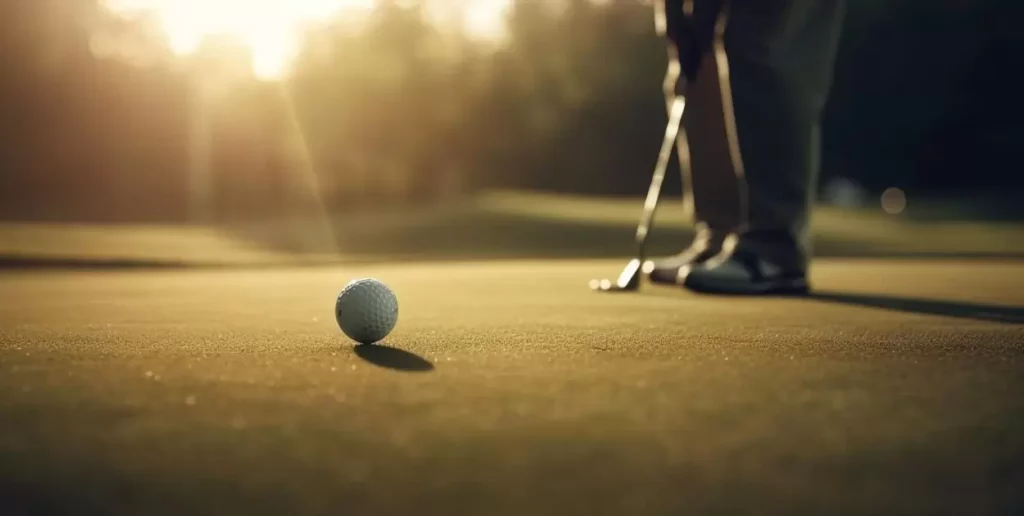
Golf ball explosions, though rare, can be unsettling. To avoid them, start by inspecting golf balls before use. Look for any visible cracks, deformities, or abnormalities. If a ball appears damaged, discard it to eliminate potential risks during play. Store golf balls in a cool, dry place, avoiding exposure to extreme temperatures, which may contribute to internal pressure build-up.
Moreover, selecting high-quality golf balls from reputable brands enhances safety. Prioritize balls with a solid construction and reliable manufacturing standards. While occurrences of exploding golf balls are infrequent, taking these preventive measures ensures a smoother and safer experience on the golf course.
Myth Busting: Do Golf Balls Explode in Freezing Temperatures?
When it comes to the notion of golf balls exploding in freezing temperatures, let’s debunk this myth. While it’s true that extreme cold can affect a golf ball’s performance, causing it to feel harder and not travel as far, the idea of them spontaneously exploding is not accurate.
Golf balls are designed to withstand various weather conditions, including cold temperatures. However, if a golf ball has been submerged in water and then freezes, the expanding ice can potentially damage the ball’s core. This scenario is rare and requires specific conditions, making it unlikely for golf balls to explode during a typical round in freezing weather.
Golf balls are resilient and built to endure adverse weather conditions, so you can confidently hit the links in colder temperatures without fearing any explosive surprises.
Loud Exploding golf balls
- Unexpected Bangs:
- Loud exploding golf balls startle players due to an unexpected loud noise during play.
- Manufacturing Anomalies:
- Defects during manufacturing, like uneven core compression, can contribute to the loud exploding phenomenon.
- Temperature Impact:
- Extreme temperatures, especially heat, may cause the gas inside the golf ball to expand rapidly, resulting in explosions.
- Internal Pressure Buildup:
- Accumulated internal pressure within the golf ball, possibly due to defects, contributes to the loud bang.
- Rare Occurrence:
- While rare, loud exploding golf balls prompt concerns about safety and the impact on the overall golfing experience.
- Prevention Measures:
- Proper storage and quality ball selection can reduce the risk of loud explosions, ensuring a safer and more enjoyable game.
FAQ’s
How do you preserve golf balls?
Preserve golf balls by storing them in a cool, dry place, away from extreme temperatures, and replacing them regularly.
How do you get the explosive golf ball?
Explosive golf balls are rare; ensure quality purchases from reputable brands, avoiding damaged or defective balls.
How do I stop attacking my golf ball?
Prevent attacking the golf ball by focusing on a controlled swing, maintaining proper technique, and seeking guidance from a golf pro.
How do I stop losing my golf balls?
Avoid losing golf balls by staying within the course boundaries, using bright-colored balls, and playing strategically to minimize errant shots.
Conclusion
Understanding the rare occurrence of exploding golf balls involves recognizing manufacturing defects, temperature impacts, and internal pressure buildups. To prevent such unexpected disruptions, golfers can prioritize quality ball selection, storing them in optimal conditions, and replacing them regularly. With vigilance and adherence to proper storage practices, players can mitigate the risk of encountering exploding golf balls, ensuring a safer and more enjoyable experience on the golf course. The key lies in combining awareness, informed choices, and preventive measures to enhance the overall safety and pleasure of the game.
